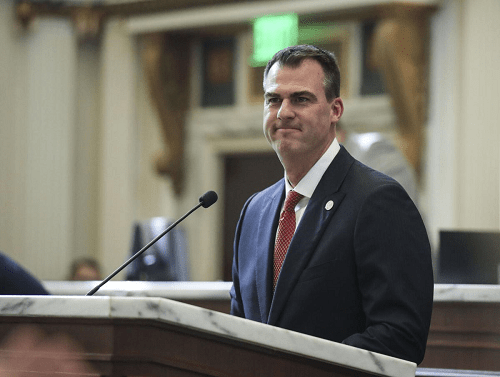
12.23.21 – Tulsa World –
he story below, originally published May 22, 2021, in Tulsa World, is being reissued among top stories of the past year during a free-to-read week presented by Bill Knight Automotive:
OKLAHOMA CITY — Gov. Kevin Stitt on May 21 signed legislation that lowers income taxes on individuals and businesses while increasing investment in education.
House Bill 2962 cuts individual income tax rates by 0.25%, lowering the top rate to 4.75% from 5%. It could leave Oklahoma’s rate sixth-lowest among states that levy individual income tax.
It also restores the refundability of the earned income tax credit, which benefits low-income individuals. Restoration had been a key issue for Democrats for years.
Stitt also signed House Bill 2960, which lowers the corporate income tax to 4% from 6%.
Both tax changes are effective Jan. 1, 2022.
“I am proud to sign legislation that lowers taxes and lets hardworking Oklahomans keep more of their money,” Stitt said in a press release. “I’ve pledged to make Oklahoma a Top Ten state for business and making our business taxes among the lowest in the nation is another tool that will help us continue to recruit and retain companies.”
Sen. J.J. Dossett, D-Owasso, said the state has cut its revenue sources in the past and underfunded important things such as education. A tax cut is incredibly difficult to restore, he said, because Oklahoma law requires a supermajority of votes in both legislative chambers to raise taxes.
“We are getting one-time federal money, and we are cutting our state resources,” Dossett said. “Once the federal money has run out, this could be a problem.
“No one is even really calling for this, either. This was purely a political move.”
Reducing the personal income tax and eliminating the corporate income tax were priorities of House Speaker Charles McCall, R-Atoka.
Stitt also signed Senate Bill 1080, which increases the cap on the Equal Opportunity Scholarship. The program provides tax credits to donors who contribute funds to support education, including public school foundations.
“Because we kept Oklahoma open for business in 2020, we are able to make historic investments in education and other core services while cutting taxes and replenishing our state savings account,” Stitt said. This year, lawmakers were able to put about $1 billion in savings. https://52628d285e05ca665e61978248724133.safeframe.googlesyndication.com/safeframe/1-0-38/html/container.htmlSB 1080 raises the amount of tax credits available for the program to $50 million, with $25 million for public schools and $25 million for private schools.
The old cap for private schools was $3.5 million, while the cap for public schools was $1.5 million.
The grants can be used by families for scholarships to private schools and by public schools for innovative programs or classroom support.
“Over the past year, it’s become even more clear that education is not one-size-fits-all,” Stitt said. “Parents and students across Oklahoma want more options, and this program helps create more opportunities for kids to attend the school that best fits their needs.”
Rep. John Waldron, D-Tulsa, said the scholarship program will favor private schools and the 35,000 students who attend them far more the 700,000 students who attend public schools.
“How can we hold their use of public dollars accountable when we can’t even hold a public virtual charter school accountable for its use of public money?” Waldron asked, referring to the probe of Epic Youth Services, a for-profit company that manages Epic Charter Schools.
An $8.8 billion FY 2022 budget agreement also includes a new film incentive, in the form of a rebate capped at $30 million, and $42 million in incentives to expand broadband to underserved areas.
Common education saw a hike in next year’s budget of $171.8 million to aid with class-size reductions and textbooks.
“One of the things that disappoints us the most is this budget stashes over $800 million, and that is money that should be invested in Oklahomans, especially when so many of them are still struggling from the effects of the pandemic,” Minority Leader Rep. Emily Virgin said.
She called the tax cuts “short sighted,” adding that they will lead the state back to where it was just a few years ago, when lawmakers had to raise taxes to increase education funding.
